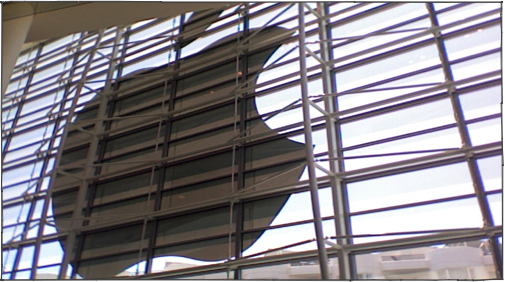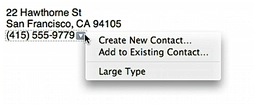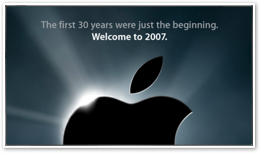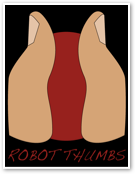


Certain bloggers' reactions to Apple's Worldwide Developer Conference keynote appear to get more negative each year in reverse proportion to the growth of the event. This year, while WWDC was the largest ever--with over 5,000 attendees from all over the world--the initial reactions by a number of bloggers seemed to paint the picture of a downright boorish event that didn't just fail to impress, but largely disappointed the crowds that attended.
Of course, quite a few of the bloggers quick to pass judgement on WWDC did not even attend the event, but only based their reactions upon secondhand reports and the marketing information on Apple's website. They have lots of time to complain because they're not running around between sessions soaking up information.
That also means they don't have very much information to base their complaints upon, as Apple didn’t reveal huge amounts of its future game plan during the open-to-the-media keynote.
The real value of attending WWDC comes from its week of sessions and access to engineers, not the relatively short keynote speech given by Steve Jobs. Nobody is reporting on those sessions, as all the material covered in them is subject to Apple's non-disclosure agreement.
You Say You Want a Revolution?
Many bloggers decided Jobs' keynote speech was simply disappointing, with a common complaint being that everything presented was only a minor evolutionary progression of Apple's plans, not the revolutionary leap forward some were anticipating. What exactly is it they were they expecting?
-
•Announcements about Sun's promising new file system, called ZFS
-
•Some shiny new things in Leopard
-
•Information about third party development for the iPhone
-
•New hardware announcements
What did we get in the keynote?
-
•Commitments from EA and John Carmack’s id to deliver new games for the Mac
-
•A revamped new desktop and Finder in Leopard, integrated with other Leopard features shown last year.
-
•The Safari web browser ported to run on Windows.
-
•New information about third party development for the iPhone, which was also related to Safari.
-
•No mention of ZFS or new hardware.
Well You Know...
Expectations of ZFS were based largely upon casual comments made by Marc Hamilton, Sun’s VP for Solaris Marketing, who stated that ZFS was slated to become the default file system for Leopard.
Apple later clarified that while Leopard will deliver early preview support for the new ZFS, it won't be at all ready for an immediate migration. The ZFS rumors were simply speculation based on independent marketing talk.
The ZFS hoopla and subsequent “disappointment” provides a good example of why Apple guards its development plans behind a certain amount of secrecy. Part of that secrecy exists to make the surprise of announcements more dramatic and newsworthy, resulting in some free press for Apple.
The other side of the same coin is that when information does leak out, it is often mangled, misinterpreted, and then whipped up into a frenzy of unreasonable fantasies.
It made no sense to suggest that Apple would abandon the Mac's native jHFS+ file system to incorporate brand new technology, regardless of how many promising features it might offer. ZFS isn’t really a consumer feature.
It was only a marketing executive and various non-technical journalists and bloggers who thought that it might happen. Engineers certainly weren't buying into it. Even I knew better than that, and I'm no kernel developer; I was not alone in pointing this out before the conference.
Similarly, all hopes for new hardware at WWDC were based on the idea that, twice in the last five years, Apple has released a significant new hardware platform at its developer conference: last years' introduction of the Mac Pro and the 2003 introduction of the Power Mac G5.
We All Want to Change the World.
Apple just announced three significant new product categories in January and has bumped up a number of its Mac hardware lines since.
Calling the WWDC keynote a disappointment based upon unfulfilled rumors--neither of which were likely or really reasonable--is therefore a bit of a stretch, and ignores the fact that Apple actually delivered more than what was reasonable to expect.
Note that does not mean that Apple delivered everything one could imagineer. My own hardware predictions, tacked on to the end of my wish list article, were all rather fanciful.
What is more interesting is that the technology bits I've been publicly wishing for over the last couple years were mostly all delivered, albeit sometimes in ways I didn't expect.
For example, my idea for a “Remote Desktop Express” was delivered last year when Apple announced iChat Theater, except that instead of being a nerdy desktop screen sharing client, Apple demonstrated it as a more useful way for even non-technical users to share applications or documents in ways that make effortless sense.
Apple not only demonstrated draggable tabs, but delivered them right now in Safari 3.0. Bonjour file sharing jumped into a prominent position the new Finder, and Apple Data Detectors showed up in Mail.
The Mail demo on Apple's Leopard preview site even refers to the feature as "detecting data," although the ADD acronym was lost with the passage of time, no doubt due to the scourge of Ritalin.
In any case, anything that looks like a date, phone number, or address now gets a tag that offers to do smart things with the information.
The Finder plugin system for previewing documents and delivering Vista's file icon previews also made it under the name Quick Look, although despite all my wishing for Safari and iTunes features in the Finder, I didn't think to predict Cover Flow, partly because my Finder article was written before Cover Flow even made it to iTunes.\
You Tell Me That It's Evolution.
Thankfully, all of these technologies are added as evolutionary refinements and thoughtful additions to Mac OS X, not a wholesale trashing of the entire Mac desktop and all of its conventions in a bloody coup.
When Detroit rolls out a new year of automobiles, the number of wheels and the placement of pedals does not change. Instead, we get new safety features and a fashionable new ripple in the sheet metal.
Are motoring enthusiasts ever disappointed that the gas petal hasn’t been replaced by a new control based on the as-seen-on-TV Clapper, or perhaps a Minority Report glove and video sensors?
A massive revolution of the user interface wouldn't be a good thing at all, so its curious that some seem quick to recommend that we forget everything we know about computers and instead try to adapt to some sort of experimental new 3D desktop instead.
Well You Know...
Apple works to balance the proven conventions we've already learned about how to use the desktop, while adding new refinements that make using it easier, faster, and more fun.
Leopard dishes out a number of very significant new advances, even if they may be hard to recognize in the context of booing bloggers. I'll be detailing my ideas on them shortly, after my brain gets a chance to recover.
We All Want to Change the World.
The other big news was that Safari has gone cross-platform to Windows. This plays into Apple's strategy for pushing the adoption of open standards on the web.
That’s something that will help make the Safari browser a better browser for Mac users and help expand the number of websites that work well on the iPhone, but it also advances the state of the art across the industry.
Even PC users who can't be bothered to download a better browser than the Internet Explorer that shipped on their system will benefit, as more strong competition in the browser market will push Microsoft to innovate, and hopefully to innovate in a way that is increasingly standards based.
That will also benefit Mozilla/Firefox, Opera, and everyone else in the browser arena, because the more reasons there are to build standards-based websites, the better interoperability there will be for everyone who uses a browser, no matter which one they choose to use. Choice and competition is good when there are standards.
Don't You Know It's Gonna Be Alright.
After just three days of WWDC, I feel like my brain needs a vacation. There's still two more big days to go!
Tuesday, I managed to download some sort of untimely bug that I've decided came from a foreign country, as it's not something I've tangled with before. After a monstrously plaguing headache and a very miserable day, I'm only just now feeling a bit less than fully exhausted.
Even crippled to about a 20% capacity, I still managed to do a podcast with Gene Steinberg of the Mac NightOwl, which should be up later today, covering some perspectives of the WWDC keynote announcements.
I also did a radio interview for the French Europe1 radio broadcast. That particular fifteen minutes of fame--shared with Reuters story--covers my willingness to camp out on the Apple Store sidewalk for an iPhone.



My aching head is still full of stories, so watch out for:
Does Leopard Look Like Vista?
BHOze and the BHOzing BHOzers that BHOze Them.
EA’s Intel Mac Games: WINE and Cheese??
If you’re at WWDC, be sure to say hi!
Like reading RoughlyDrafted? Share articles with your friends, link from your blog, and subscribe to my podcast!
Did I miss any details?

Haloscan Q107
 Bookmark on Del.icio.us |
Bookmark on Del.icio.us |  Discuss on Reddit |
Discuss on Reddit |
 Critically review on NewsTrust
Critically review on NewsTrust
 Forward to Friends |
Forward to Friends | 
 Get RSS Feed |
Get RSS Feed |
 Download RSS Widget
Download RSS Widget
Check out the Daily Show Multi-Pass on iTunes.com

Next Articles:
This Series
WWDC 2007: An Inside Perspective From the Halfway Point
Thursday, June 14, 2007

Ad













